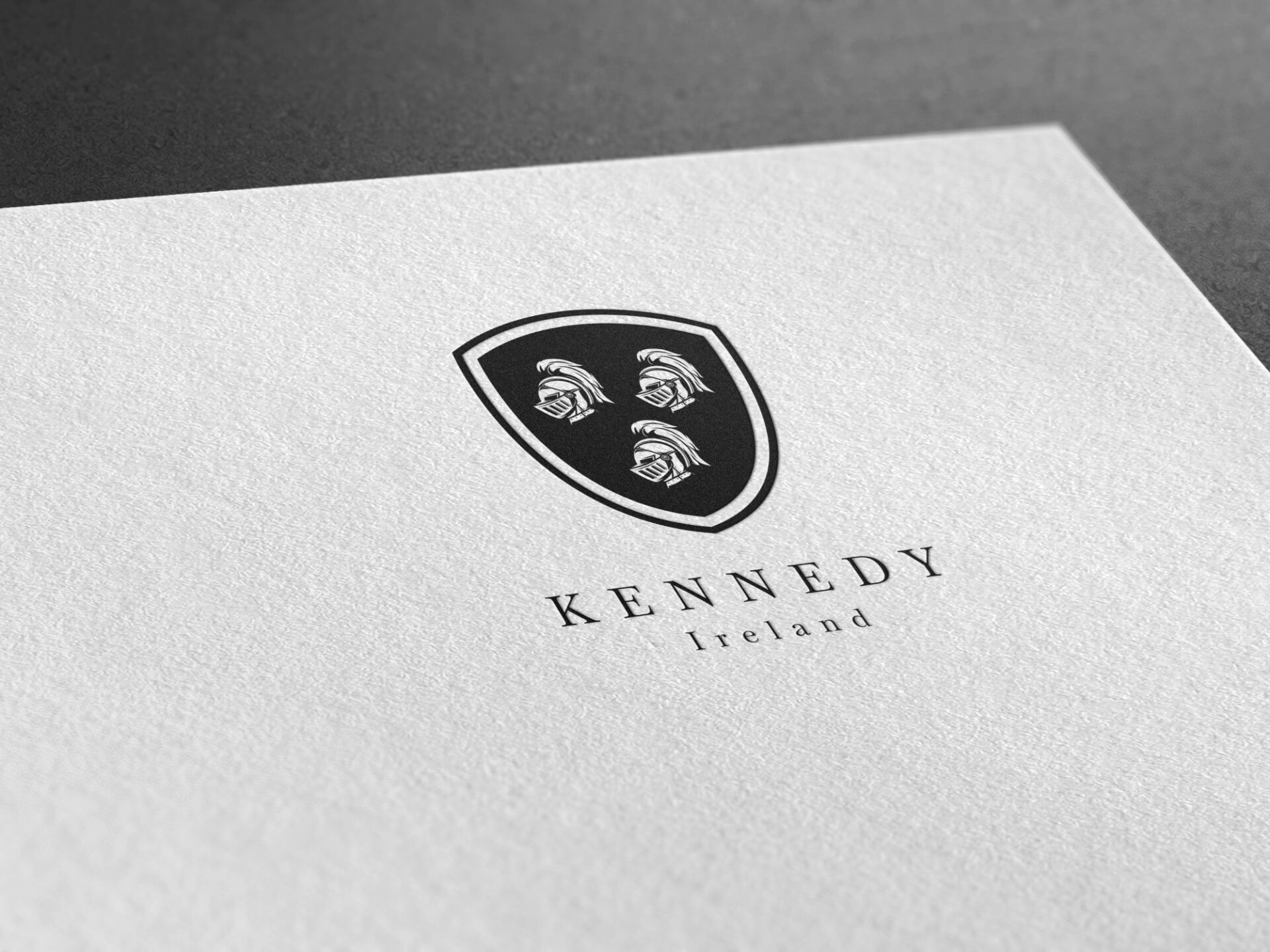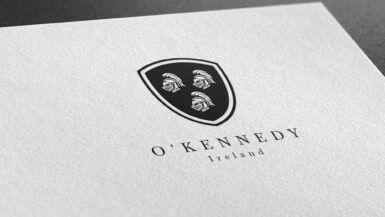The Kennedy surname, known in Irish as Ó Ceanéidigh or Ó Cinnéide, is one of the most distinguished names in Ireland. Its roots trace back to the ancient Gaelic tribes of the Emerald Isle.
Etymology and Meaning
The name Kennedy is derived from two Gaelic words: “ceann” meaning head, and “éidigh” translating to wretched or ugly. Thus, the surname is often interpreted as “ugly head,” though it may have been more akin to “wounded head,” hinting at a fierce warrior or leader.
Earliest Known Usage
The first recorded spelling of the family name Kennedy, according to ancient manuscripts and cartularies, was that of Teag Ó Cinnéide, dated around 1095, in the “Ancient Irish Tribes.”
Geographic Distribution
Historically, the Kennedys were Lords of Ormond and held considerable territories in the counties of Tipperary and Kilkenny. Today, the name is widespread throughout Ireland and has a strong presence in the United States, Canada, Australia, and the United Kingdom.
Original Geographic Location
The original geographic location of the Kennedy family is in the region of Ormond, now part of counties Tipperary and Kilkenny in Ireland.
Migration Patterns
The Kennedy family, like many Irish families, saw a significant wave of emigration during the Great Famine (1845-1852). Many Kennedys left Ireland for North America, Australia, and other parts of the British Empire, leading to a global spread of the surname.
Historical Context
Notable Historical Events
The Kennedy family has been involved in several notable historical events, including Ireland’s fight for independence and the subsequent formation of the Irish Free State.
Involvement in Key Moments in History
One of the most significant moments involving the Kennedys was the election of John F. Kennedy as President of the United States in 1960. His presidency, though cut short by assassination, marked a high point in the global prominence of the Kennedy name.
Notable Bearers of the Surname
Famous Individuals
The most famous Kennedys are undoubtedly members of the Kennedy political dynasty in the United States, including President John F. Kennedy, Senator Robert F. Kennedy, and Senator Edward “Ted” Kennedy.
Influential Figures
In Ireland, influential figures bearing the Kennedy surname include Mary Kennedy, a television personality and author, and Michael Leay Kennedy, a former member of the Irish Parliament.
Variations of the Surname
Spelling Variations
Spelling variations of Kennedy include Kenneday, Kennedye, O’Kennedy, and Kennedi, among others.
Regional Differences
Regionally, the Kennedy surname has been anglicized differently across Ireland and the world, such as “Minneedy” in some parts of Ireland or “O’Kennedy” for some families who migrated to the United States.
Current Statistics and Distribution
Frequency and Global Distribution
The Kennedy surname is most common in Ireland and the United States, with substantial numbers in the United Kingdom, Canada, and Australia.
Changes Over Time
The distribution of the Kennedy surname has expanded significantly over time, moving from its original geographic location in Ireland to become a globally recognized name.
Family Coat of Arms

The Kennedy family crest of Irish origin is a distinctive and evocative heraldic symbol, deeply rooted in the family’s history and values. The crest features a black background, known as sable in heraldry, which often symbolizes constancy and sometimes grief. The choice of black sets a solemn and resilient tone for the crest, underscoring the family’s enduring strength and determination.
Central to the design of the crest are three knights’ heads. In heraldic terms, the depiction of knights’ heads is a powerful symbol representing chivalry, warrior spirit, and military service. Knights are traditionally associated with honor, protection, and valor, qualities that have evidently been significant throughout the Kennedy family’s history.
The presence of three heads can be symbolic of watchfulness and vigilance, suggesting that the family values not only strength in battle but also the strategic and protective roles of leadership. This could hint at the family’s historical involvement in local or national defense, as well as their commitment to safeguarding their community and upholding justice.






Liked ! Very well read , short enough to keep my attention at 102 . Rite to the facts . 👍👍👍MK 🥷🏿